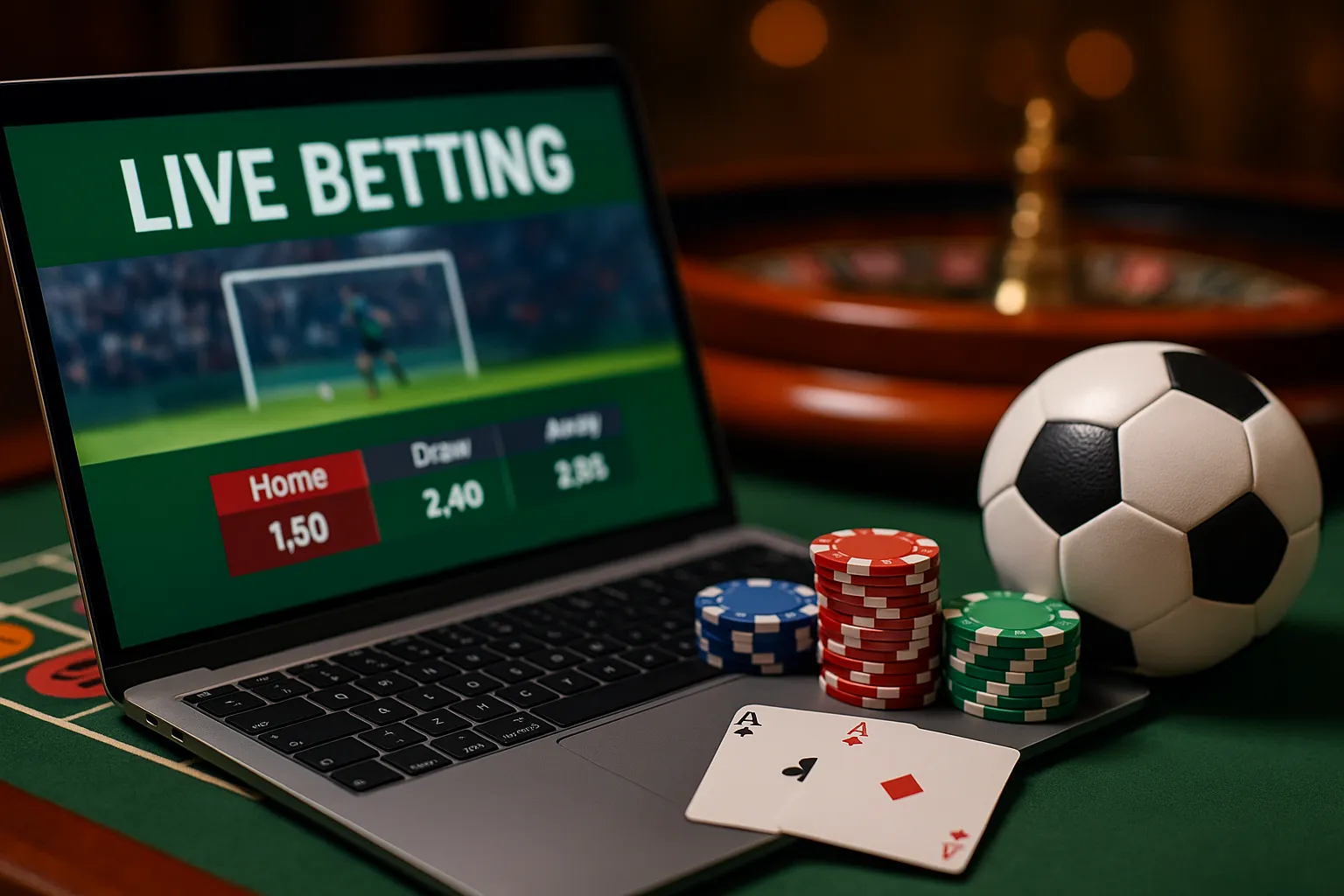If you’ve ever placed a bet while watching a live match, you’ve probably noticed how quickly the odds can swing — sometimes within seconds. One moment, your team is the heavy favorite; the next, a single corner kick or missed shot changes everything. For new bettors, this can feel confusing or even overwhelming. But once you understand the mechanics behind live betting, those rapid shifts begin to make sense.
As someone who’s followed in-play betting closely for years, I can tell you that live odds aren’t just random. They’re shaped by algorithms, market activity, and human psychology. And if you know how to read those shifts, you can make smarter betting choices. For those who prefer more freedom and fewer restrictions, alternatives like UK betting sites not on gamstop also provide interesting ways to explore live markets with more flexibility.
The Role of Algorithms in Live Betting
Modern sportsbooks rely heavily on real-time data algorithms. These systems process thousands of data points every minute: possession stats, shots on goal, fouls, and even advanced metrics like expected goals (xG). When a team looks statistically dominant, the algorithms adjust odds instantly.
For example, if a football team creates several high-quality chances in five minutes, the algorithm interprets this as an increased probability of scoring. Odds for that team shorten accordingly, even if the score hasn’t changed yet. This is why bettors who only glance at the scoreboard can miss the deeper story the odds are telling.
Market Reaction and Player Behavior
Algorithms aren’t the only drivers. Human betting activity itself plays a massive role. If thousands of people suddenly start backing one outcome, the bookmaker will shift the odds to protect against liability. This is the same principle as a stock market reacting to mass buying or selling.
In big matches, especially finals, public sentiment can swing odds even faster than stats. If a star player limps off injured, you’ll see massive betting movement — not only because the algorithm picks it up, but also because millions of bettors react emotionally at the same time.
Live Odds and Key Match Events
Nothing moves live odds faster than key in-game events. Goals, red cards, and penalties are the most obvious triggers. A single goal can flip the odds completely. A red card is even more dramatic — one moment a team is favorite, the next they’re long shots after going down to ten men.
But there are subtler influences, too. A shift in momentum, like a dominant spell of possession, can cause smaller but significant odds adjustments. Experienced bettors often use these micro-shifts to find value before the scoreboard catches up.
The Influence of Time Pressure
As the clock ticks down, time itself becomes a factor. If a favorite hasn’t scored by the 70th minute, the live odds for them to win lengthen dramatically. The less time remaining, the lower the probability they’ll change the outcome.
This creates opportunities for bettors who believe in late goals or dramatic turnarounds. Conversely, it also tempts riskier bets from players chasing higher returns in the dying minutes of a match. Understanding this time-driven dynamic is crucial for betting with discipline.
The Psychological Impact on Bettors
Live betting odds aren’t just shaped by data — they also shape player behavior. Constantly shifting numbers create urgency and the fear of missing out. Many players place bets impulsively, thinking they’ve spotted a bargain when odds shift.
Sportsbooks know this. The fast pace of live betting encourages rapid decision-making, often without proper analysis. It’s important to recognize when odds are moving due to genuine match developments versus when they’re moving because of emotional crowd betting.
Real-World Example: A Champions League Night
I remember betting on a Champions League match where the favorite dominated possession but couldn’t score. Around the 60th minute, their odds to win jumped from 1.70 to 2.40, simply because time was running out. I placed a small wager, confident their pressure would pay off. Ten minutes later, they scored, and the odds instantly crashed to 1.20.
This example shows how understanding the rhythm of a game — and why odds shift when they do — can reveal value opportunities that casual bettors miss.
Staying Smart in a Fast-Paced Market
The key to live betting isn’t chasing every swing but knowing which swings matter. Learn to distinguish between odds shifts driven by hard data (injuries, red cards, momentum) and those driven by mass bettor emotion. Always set limits before you start, because the pace of in-play betting makes it easy to lose discipline.
For players exploring alternative betting environments, low-deposit options and sites outside stricter frameworks can provide more room to experiment, but they also demand extra responsibility. Odds move quickly everywhere — the challenge is keeping your judgment steady.
Final Thoughts
Live betting odds shift so quickly because they reflect a perfect storm of factors: advanced algorithms, market behavior, key match events, and time pressure. Each plays its part in shaping a constantly moving target. For bettors, this can either be a source of frustration or an opportunity, depending on how well you understand the mechanics.
If you treat odds shifts as signals rather than distractions, you’ll find yourself making more informed bets and avoiding the traps that many impulsive players fall into. Live betting will always be fast-paced, but with the right mindset, you can stay one step ahead.









